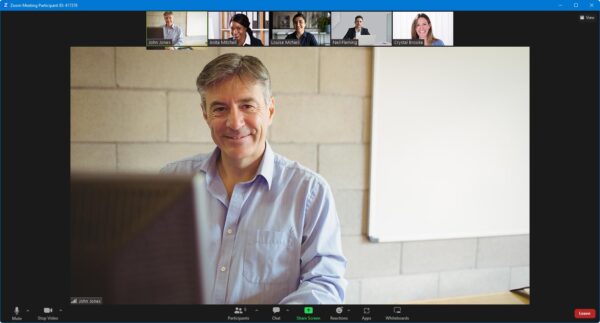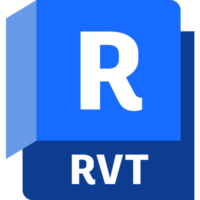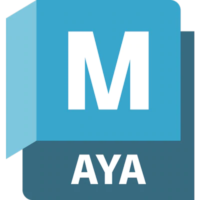Report writing training
1 day
In centre:
£please call
Live online:
£please call
Key details
Report writing training course teaching practical techniques for rapidly creating effective business reports that are reader-focused and persuasive.
Effective report writing is an essential skill for both the individual and the business. For the individual, it is a career skill that can make a huge difference to how they are perceived within their field. For the business, effective internal and external reports increase efficiency, profitability and employee and customer satisfaction.
Report writing training is ideal for anyone who wants to improve their report writing skills. Typical delegates include:
- Managers at all levels.
- Management-track professionals.
- Employees who have to prepare reports on a regular basis.
You’ll learn how to:
- Plan reports to target readers and achieve objectives.
- Produce compelling recommendation reports that are easy to read, understand and act upon.
- Use the pyramid structure of reports to appeal to differing groups of readers.
- Improve understanding of documents by structuring information in a way that is helpful to the reader.
- Develop a clear, persuasive writing style.
Report writing training is arranged on-request, i.e. one-to-one training or a ‘closed course’ for your group. Your training can be tailored to take into account any existing knowledge you have, and the work you’re going to be doing.
In-class or online
This course is available in-class at eight centres or live online.
Expert trainer
Report writing courses are hosted by a highly experienced instructor who has over twenty five years’ experience in a varied range of writing roles. See Expert trainer.
How will I learn?
Training combines lecture, demonstration and hands-on practice.
Exercises provide activity-based experience and help build delegates’ confidence writing reports. These exercises can be tailored to deal with issues specific to your business.
You have ample opportunity to discuss specific requirements with the trainer.
Training guide and certificate
Course delegates receive:
- A training guide and exercise materials, to refer to throughout the course, and to use as a refresher back in the work-place.
- A report template, incorporating best practice design and structure as taught in the course, and a substantial amount of document automation to expedite the production of reports.
- Checklists and job aids that focus each stage of the writing process for use back in the workplace.
- An e-certificate confirming successful completion of Report writing training. Click here to see an example of the certificate you receive.
After course support
Following Report writing training, delegates are entitled to 30 days’ email support from their trainer to help with any post-course issues. For further details, see Support.
General information
Course times
Standard course times are 9.30am–4.30pm.
As we’d be hosting this as a ‘closed course’ for you/your group, there’s usually flexibility to change these times to suit you, e.g. start or end 30 minutes earlier or later.
Payment
Payment for business writing training can be made by:
- Bank transfer. Please call 01527 834783 for our bank details.
- Card. All major credit and debit cards accepted. Payment can be made securely online or over the phone. Card payments are processed by Stripe. Armada doesn’t record or store your card details.
Purchase orders
We accept purchase orders from UK-registered companies and public sector organisations.
Accommodation
See Accommodation local to our training centres.
Cancellations and postponements
If an on-request Report writing course booking is cancelled giving less than 20 working days’ notice, a cancellation fee is payable. View cancellation terms.
If an on-request Report writing course booking is postponed giving less than 20 working days’ notice, a postponement fee is payable. View postponement terms.
Terms and conditions
Expert trainer
Robert Bullard

Robert has over twenty five years’ experience in a varied range of writing roles including technical author, copywriter, feature writer and freelance journalist.
He has worked for several national newspapers and magazines including The Guardian, Daily Telegraph, Local Government Chronicle and Community Care, and has experience in the PR and media industries having ventured into national and regional radio, giving interviews and writing press releases.
Robert also carries out regular training course development work, and he delivers a variety of training courses in all aspects of writing for business.
He particularly enjoys relaying the knowledge he has acquired in his extensive and diverse career.
Course content
First-class business writing: the value to your business
- Adding value to the public image of your business
- Making your business more effective
- Increasing profitability
Focusing on your readers and your objectives
- Focusing on your reader, not yourself
- Understanding your readers:
- Communication styles
- Experience
- Purpose
- The customer’s knowledge and expectations
- Politics and sensitivities
- Determining the report objective
The report writing process
- Managing the process
- Planning
- Pre-writing
- Collecting and organising information
- Preparing your structure: modelling, brainstorming, outliner tools
- Testing your structure
- Drafting
- Revising
The report template
- Front matter
- Objectives
- Scope of work
- Statement of problem or remit
- Executive Summary
- Report body
- Conclusions
- Recommendations
- Back matter
Writing the report
- The Report Paradox:
- Readers don’t take short reports seriously
- Readers don’t want to read long reports
- How to overcome the Report Paradox
- Building a pyramid of information
- Stating the problem
- Reader-focused structure and style
- Dovetailing your information with your reader’s requirements
- Adopting a style that works for your readers
- Effective conclusions
- Recommending a solution
- Developing criteria
- Explaining alternatives
- How to overcome writer’s block
- Back matter
- Annexes, Appendixes, and Appendices
- Glossary of Terms
Creating a great Executive Summary
- Identifying the levels of interest of your readers
- Aligning your reader’s levels of interest with your Executive Summary
- Good and bad Executive Summaries
- Creating a great Executive Summary
Writing persuasively
- The structure of persuasion
- How decisions are made
- How long does a decision take?
- Familiarity and recognition
- Single-issue decision making
- Return on investment
- Establishing credibility
- Addressing potential reader objections
- Using data from multiple credible sources
- Your professional qualifications
- Aligning your message with the beliefs of the business
- Accuracy
- Saying what you mean
Avoiding common pitfalls
- Reviewing your writing
- Critical elements in grammar and punctuation …and why they are critical
- Indispensable editing techniques
- Spelling and typographical errors
- Checking and amending your document
- Proofreading tips
- Fused and fragmentary sentences
- Homophone and homonyms
- Commonly misused words and clichés
- Time management
- Avoiding deadline doom
Live online training
Live online training lets you participate in a course from your place of work or home.
We do everything possible to make your online training experience as close as possible to actually being in the classroom. You can:
- See and hear our trainer, and the other delegates participating in the course…

- Interact by speaking, using chat, or raising your ‘virtual hand’ if you need assistance.
- Share your screen with our trainer, and allow them to take control to explain something.
Like our in-class courses, online courses…
- Are presented by expert instructors.
- Give you plenty of opportunity to carry out assisted, practical exercises.
- Offer 30 days’ email support from your trainer.
All you need is an Internet-connected computer with a webcam and audio capability. We provide everything else…
- Links to download the files, resources, etc. you’ll use in your course.
- A training guide. For most courses, you can choose from a printed copy that we post to you, or a PDF.
In the week before your course, we’ll send you an email containing everything you need to prepare for and participate in the training. Then, a couple of days before your course, we’ll give you a courtesy call to make sure you have everything in place and answer any questions you may have.
Please note that we are not able to record scheduled online courses for privacy reasons.
When you attend live online training, you’re participating in a real course, hosted by a real trainer, in real time
Charlie S
















































